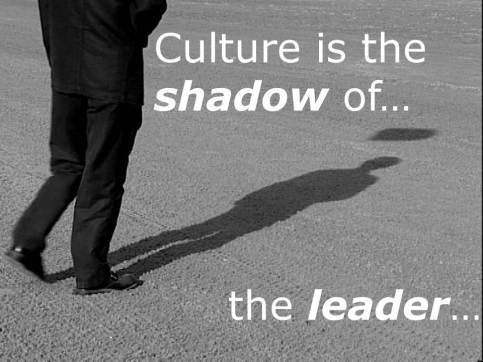8
Ask yourself a question – what is at the heart of almost everything we think, feel and do as a species?
8
QUESTIONS!
8
Be they closed- or open-ended, questions drive how human beings listen, think and behave…And, I’m not just talking about matters of life, the universe and everything – you know, the questions our kids ask us (*):
- Why do baked beans give us gas?
- Why do people shrink when they get really old?
- Why do men have nipples (if they can’t have babies)?
8
We know (don’t we?) that questions are the secret to more effective student LEARNing (esp. when these questions come from our kids and students). We know (don’t we?) that questions can help teachers do a better job of supporting student (and their own) LEARNing. We know (don’t we?) that questions can help improve team, departmental and institutional performance levels…
8
So, why is it that we ask so few questions – and even fewer questions that really “matter”? And, when many of us do ask questions – why is it that so many of them are just so God-damn awful?
8
8
Over the years, I have had the priviledge of working for a number of larger (and smaller) educational institutions and also been a consultant for others.
Some of these could be described as “effective”, some others…not so much!
8
What I have noticed in the “less effective organisations” is a series of “patterns” vis-a-vis the questions people in the institutions ask (or do not ask):
- Many of those at the “lower-levels” of these insistutions do NOT ask many questions at all (esp. of those at the “top”) – it’s almost as if they have been “conditioned” not to ask questions and “trained” to assume that it’s OK to “bitch” and “moan” when things do not go well (a lot more when the “bosses” are not around).
- Many of those in the “middle” ask questions – but questions that often seem to have been “crafted” by UN diplomats or “engineered” to make those at the top look “wiser” or “smarter” than they actually are. Mostly, however, the questions asked by this group are about getting “permission” – or making sure those at the top “sign off” on ideas that might be a bit “risky” (this forms part of a much more complex matrix of “CYA strategies”).
- Those at the “top” ask the most questions – but many of these questions are about “What’s new?” or “How can we (be seen to) be different?” (for example). Other questions seem focussed on “bitching” and “moaning”, too – or, more specifically, seem to come from a place that is all about “pointing fingers” and “assigning blame”.
8
I refer to organisations and institutions that exhibit all three patterns (together) as “dinosaurs that just do not know they are already extinct” – and if we knew how many of them really exist out there (in education), we’d not get a lot of sleep at night!
Extinct…because the world has changed…and it’s continuing to change faster than ever.
8
These ineffective and dinosaur-like institutions just don’t seem to “get” this (I was going to say something about “brains the size of peas” – but you’ve all read Darwin, yes?).
It seems as if many of them are “scared” of embracing the “energy” that real, powerful questions could bring them – and prefer to opt for “improvement initiatives” that are, in practice, little more than re-arranging deckchairs on the Titanic…
So, what is it that inhibits the “evolution” of these institutions or prevents them from carrying out the type of “adaptive imagineering” that is required?
8
In a word…
Sadly, organisational cultures that “live” in the past…cultures that thrive on the “prestige” of the past…and are dominated by out-dated notions of respect, deference and tradition.
This is why – IMHO – we see the three “patterns” I noted earlier!
8
Don’t get me wrong!
I’m not some kind of “whacko-educational-bolshevic” (OK – maybe just a bit)! It just seems so “dumb” to try to protect a “status quo” at the expense of what really matters – but, then again, maybe it’s just people protecting their own “status” that is the real problem.
For me, respect (prestige, too – even though there is nothing “real” about it) is something that has to be earned (and re-earned every day). It is earned best by thinking-doers who prioritise “service to others”, especially during challenging times – not those that demand that they “be served” by others (and egos “fed” with a healthy diet of flattery and hot air).
8
OK – went a wee bit off track there!
The bottom line is that…the original dinosaurs were not very good at QUESTIONING, either!
8
Those of you that pick up allthingslearning on a regular basis from your newsagent (I must admit I do miss one or two “pre-historic traditions”) will also know that we try to use a “questioning insight” on a pretty regular basis…
- QUESTIONS about allthingsteaching
- QUESTIONS about allthingscurriculum
- QUESTIONS about allthingsassessment
We have tried to bring all these together as:
- QUESTIONS about allthingseducationalliteracy
And, also looked at how these align with:
- QUESTIONS about allthingstechnology
8
Come on…we’ve even touched on:
- QUESTIONS about allthingsparenting
However, in matters of “culture” – we keep coming back to many of the same points. One of these is:
8
It is for this reason that we have suggested a wide range of:
- QUESTIONS about allthingsbestpractice
- QUESTIONS about allthingspurpose
And,
- QUESTIONS about allthingsleadership
8
The problem is that questions like these are only useful if an institution has a questioning culture.
“Effective” institutions do, “ineffective” ones do not…
And, instıtutions that have a questioning culture usually have “questioning leaders” that know how to ask the right questions and encourage others to do the same.
8
“Effective” institutions do this, “ineffective” ones do NOT…
The original dinosaurs didn’t get the “memo” from Deming.
8
I wonder how many of today’s dinosaurs might “wake up” before it is too late – and then, how many of them would decide to do something about their questions…or just look for someone else to blame!
This might need a post-script!
8
(*) If you are really interested in finding the “answers” to these questions, check out Mark Leyner and Billy Goldberg’s book Why do men have nipples? – Hundreds of Questions You’d Only Ask a Doctor After Your Third Martini (Three Rivers Press, 2005). I chose these three because my big, little girl did, over her “7 ages”, actually asked me these (but Mark and Billy had not published the book at that time).
I have it now…and, I’m gonna be an awesome grandpa one day!
8













